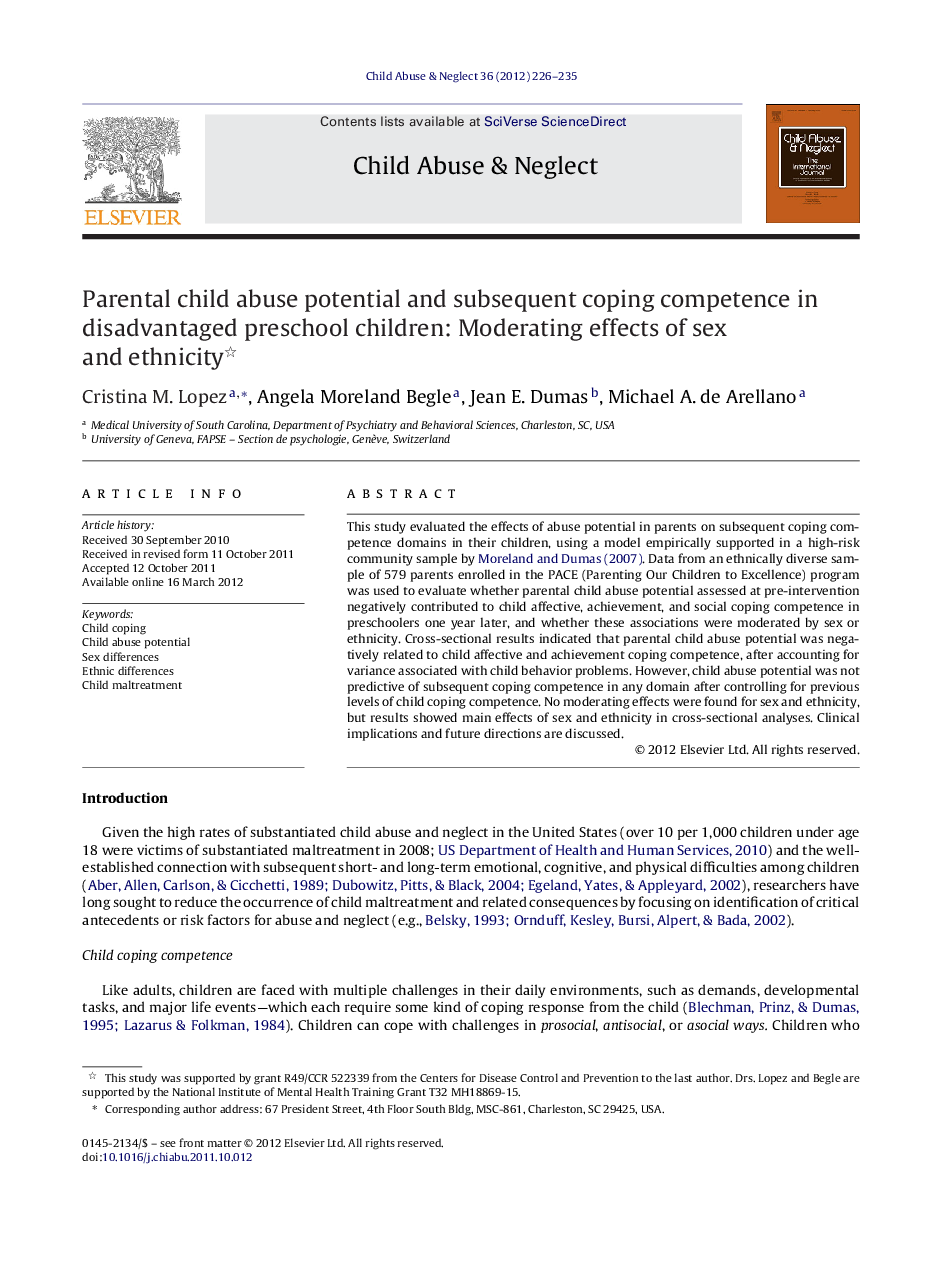| Article ID | Journal | Published Year | Pages | File Type |
|---|---|---|---|---|
| 345071 | Child Abuse & Neglect | 2012 | 10 Pages |
This study evaluated the effects of abuse potential in parents on subsequent coping competence domains in their children, using a model empirically supported in a high-risk community sample by Moreland and Dumas (2007). Data from an ethnically diverse sample of 579 parents enrolled in the PACE (Parenting Our Children to Excellence) program was used to evaluate whether parental child abuse potential assessed at pre-intervention negatively contributed to child affective, achievement, and social coping competence in preschoolers one year later, and whether these associations were moderated by sex or ethnicity. Cross-sectional results indicated that parental child abuse potential was negatively related to child affective and achievement coping competence, after accounting for variance associated with child behavior problems. However, child abuse potential was not predictive of subsequent coping competence in any domain after controlling for previous levels of child coping competence. No moderating effects were found for sex and ethnicity, but results showed main effects of sex and ethnicity in cross-sectional analyses. Clinical implications and future directions are discussed.
